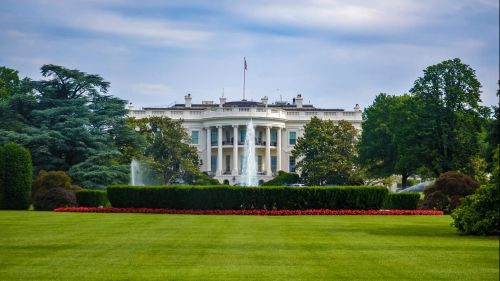Grandstanding in the Situation Room

The White House Situation Room has entertained grandstanding that betrays the seriousness of the "Sit Room" and its national security function.
White House Situation Room
The White House Situation Room has entertained several political discussions recently with President Trump and congressional leaders, spurred by the government shutdown. These were grandstanding performances that betrayed the seriousness of the “Sit Room” and its national security function.
Border security, when immigrant flows are actually declining, strangely passes for national security when the political stakes are heightened. But it is primarily a domestic policy choice weighed against other national priorities. The high-tech basement Sit Room is intended for secret meetings between top national security officials to discuss the nation’s major foreign and overseas military policies, not political negotiations, which are better suited for the Roosevelt or Cabinet Room.
The Sit Room has been a national security conclave since President John F. Kennedy created it almost 60 years ago. The Principals Committee that should meet in the Sit Room consists of such high officials as the Secretaries of State and Defense, the Director of the Central Intelligence Agency, the Chairman of the Joint Chiefs of Staff, and the National Security Adviser. Their senior deputies convene as the Deputies Committee there for more frequent detailed discussions about foreign policy options.
Normally and rightly the Sit Room is their second office, their sanctum behind secure doors in which highly classified deliberations of the most serious nature take place to determine American foreign policy. No authentic Sit Room meeting would conclude that there is a national emergency along the southwest border, although Trump seems oblivious to any such reality.
Decision-making in the Sit Room appears to be dictated by Trump’s impetuous tweets and a disregard for briefings or official memoranda. The chaos of the foreign policy process under the Trump Administration was exemplified by National Security Adviser John Bolton’s announcement in Israel that the withdrawal of American forces from Syria would be slowed down, reversing Trump's original snap decision that it would be accelerated.
Reportedly, no serious Sit Room deliberations, of the kind one would expect for an orderly consideration of the complex issues involved, took place prior to either Trump’s withdrawal announcement or Bolton’s efforts to reverse the tide.
It is simply not possible for the president to make well-considered decisions without the detail and knowledge of seasoned officials, including unpopular and dissenting views revealed in the memoranda that emerge from the Sit Room. Such deliberations could have led to the kind of reasoning articulated in former Secretary of Defense Jim Mattis’ resignation letter, and could help Trump’s pronouncements (or the lack thereof) about NATO, Russia, international trade, cybersecurity threats, election security, Saudi Arabia, human rights, Iran, North Korea, Syria, and most other international issues.
I spent four years in the Sit Room on the Deputies Committee during President Clinton’s first term, deliberating a wide range of national security challenges that tested American resolve shortly after the Cold War. The conflict in the Balkans required constant immersion by the Principals and Deputies, often in weekly and sometimes daily meetings, to reach the Dayton Accords of late 1995 and then implement its peace terms during 1996.
Those were intensive discussions, preceded by intelligence reports and briefing papers that left no doubt about the significance of what needed to be decided. They also brought to Clinton’s attention views that he needed to consider and decisions he alone had to make, carefully.
The strange phenomenon emerging today is that the Principals and Deputies doubtless are reaching the point, if and when they meet, where Trump’s own performance in protecting—or failing to protect—the national security of the United States must be examined in light of two years of extraordinary rhetorical destruction of American values, withdrawal from international commitments, and subservient praise of foreign autocrats, with U.S. interests held hostage to his whims.
Indeed, grave national security threats today, including aggression by Russia and the relentless march of climate change, require the kind of informed decision-making that emerges from Sit Room deliberations. But we are not seeing that in the Trump Administration’s discordant foreign policy pronouncements.
The responsibility of the Deputies and the Principals of the National Security Council is to deliberate authentic national security issues and to do so secretly, with facts controlling, and with the will to fearlessly deliver their most intelligent advice. Those entering the Sit Room face this reality: people in peril will survive with hope or slide deeper into despair, depending on what officials decide in there about upholding the integrity of America’s place in the world.

